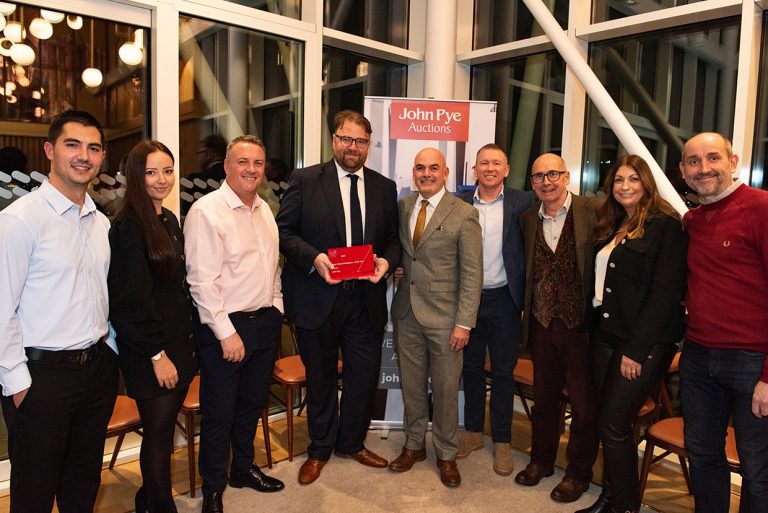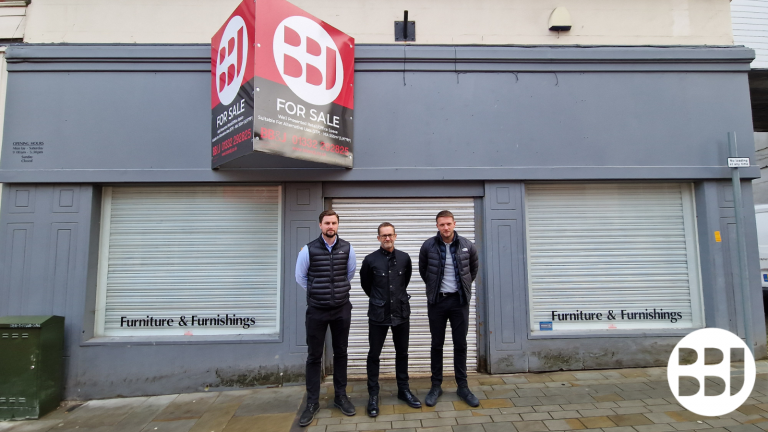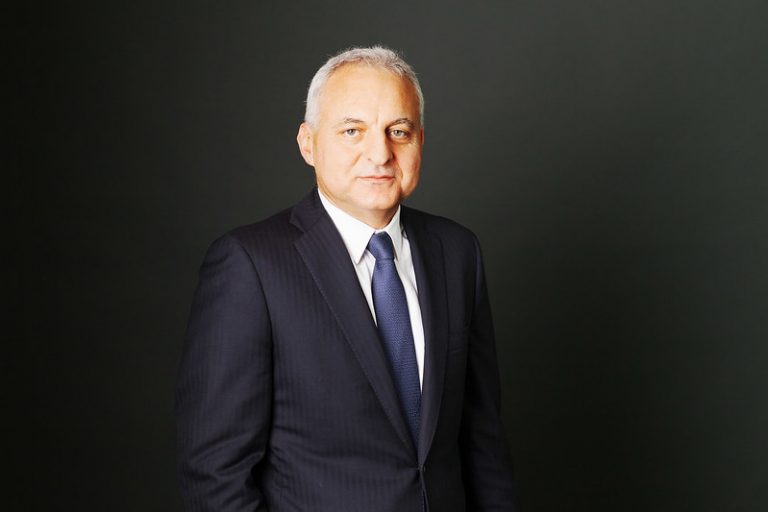£3m funding secured to deliver ‘game-changing’ new approach to skills development in Leicestershire
Law firm recruits Leicester financial litigation partner
Sixth win for John Pye at insolvency industry awards
Topps Tiles sees third consecutive record year of revenue
Topps Tiles, the Leicester-headquartered tile specialist, has recorded its third consecutive record year of revenue, with sales per store up 30% compared to pre-pandemic levels.
According to unaudited consolidated annual financial results for the 52 weeks ended 30 September 2023, group revenue hit £262.7m, increasing from £247.2m last year.
Pre-tax profits, however, slipped to £6.8m from £10.9m, which the company says reflects the impact of inflation on its cost base.Rob Parker, Chief Executive, said: “This has been a further year of strategic progress for the Group and we are delighted to have delivered a third consecutive year of record sales and to have achieved our ‘1 in 5’ market share goal two years ahead of schedule.
“While profitability for the year reflects the impact of inflation on our cost base, particularly during the early months of the period, these pressures began to abate in the second half, with the smaller store estate and the cost reduction plan at Parkside providing further mitigation.
“As we enter our new financial year, it is clear that there has been a weakening of discretionary consumer spending. The business is well positioned to deal with this period, our established brands are market leading, we are competitively advantaged and we are confident that we will continue to take market share.
“When combined with a strong balance sheet, this will support the Group’s ambitions over the medium term. Topps Group continues to develop and diversify and we remain excited by the opportunities ahead of us.”
Deal secured on Derby City Centre retail premises
Manufacturing business fined following failure to protect workers from hazardous substances
Marketing agency strengthens management team
Overcoming the bystander effect in decarbonisation
The starting point
Many businesses are eager to contribute to this cause but are uncertain about how to begin. Thankfully, raising awareness is relatively straightforward, with numerous resources available, including the UK government’s Business Climate Hub, various grants, and information on renewable technologies like heat pumps and solar energy. The real challenge for many SMEs lies in the prohibitive costs of these sustainable solutions, particularly in the current economic environment. While the long-term benefits of renewable technologies are clear, the initial investment is often beyond the reach of smaller enterprises. While budgetary constraints and limited knowledge are understandable barriers to progress towards Net Zero, less excusable is the inaction of businesses that have the means and awareness but choose not to act. This inaction can often be attributed to what’s known as the bystander effect.Understanding the bystander effect
Coined by social psychologists, the bystander effect – in simple terms – refers to the phenomenon where individuals are less likely to take action when others are present, assuming that someone else will intervene. This leads to a diffusion of responsibility and, collectively, to inaction. This phenomenon is also observable in the business response to climate change. It is understandable, as individuals, that one might be daunted or overwhelmed by the concept of climate change, and perhaps even question the impact one person can really have just by making sure your recycling goes in the correct box outside your home. These actions may seem somewhat insignificant, but collectively, they are crucial in the fight against climate change, and their impact is substantial. From a business perspective, making a genuine change to any aspect of your operations presents challenges – especially when you consider the short-term potential pain in cost and challenges in traversing the adoption of new methods by staff and customers. Change in any form costs time, resources and cold, hard cash. The journey to Net Zero for businesses involves substantial operational changes, financial commitments, and shifts in staff and customer behaviour. It is here, facing these challenges, that smaller business owners might fall victim to self-reassurances that as their contributions to decarbonisation would be “minimal” compared with those of larger businesses around them, they needn’t take action. When only one business adopts this mindset, the overall effect is minimal. However, if every small business adopts a passive stance, it significantly impedes progress towards decarbonisation. This is a line of thinking that small businesses should be wary of, and seek to avoid.Counteracting the bystander effect
Decarbonising the commercial sector is not only feasible, but essential for the planet’s long-term wellbeing. SMEs must actively work against the bystander effect by taking definitive steps to reduce carbon emissions. The UK Business Climate Hub offers guidance to the 5.5 million SMEs, advising on renewable energy solutions like air source heat pumps and strategies to reduce energy costs. Investing in commercial heat pump technology, particularly air source models, is an environmentally friendly and strategic choice for businesses, aligning with the UK’s Net Zero 2050 goal by reducing emissions and operational expenses.The business benefits to Net Zero
The impact of climate change on us all is here to see around the world. There has been a political focus on reducing carbon emissions for quite some time, and smaller businesses are an integral part of the UKs plans to meet net zero emissions targets by 2050. For small businesses, net zero means sustainable services, products that are made from sustainable materials, thorough insulation within workplaces, the promotion of public transport, sustainable distribution and shipping of products, and the use of renewable energy sources, such as commercial heat pumps. Enhance your business reputation: the modern consumer is more likely to become a long-term customer of a brand that works in a genuinely sustainable way with a focus on green credentials. Reduce energy costs: by installing commercial heat pumps, solar panels, or other types of renewable energy sources at your business, you will significantly reduce your energy consumption and bills. Become more attractive to investors: in the way the modern customer is more attracted to a business that operates sustainably, the same can be said about investment opportunities. Stability in process: by adopting electric vehicles or renewable energy sources you can become more self-sufficient and less reliant on sources of power that can be impacted by volatile markets and disruptions. While interest in Net Zero is growing among UK enterprises, the bystander effect poses a threat to this momentum. To ensure that sustainable practices are adopted widely and effectively, it’s vital that key players, including renewable energy suppliers and heat pump manufacturers, collaborate to support and motivate SMEs in adopting sustainable business models.Pockets of deal activity drive logistics and supply chain transactions to two-year high
M&A activity in the UK logistics and supply chain management sector has rebounded to 2021 levels, with renewed interest from international buyers and venture capital investors targeting early stage tech-enabled companies.
Mirroring levels seen in Q4 2021, 21 deals were completed between July and September. Notably, there was a ‘reawakening’ of investment appetite towards UK assets from international buyers, with significant deals involving key industry players including Super Group Limited, DSV A/S, and InPost SA. Meanwhile, almost 20% of transactions were venture capital investors targeting early stage tech-enabled companies servicing the sector.
According to a new report from accountancy and business advisory firm, BDO LLP, disclosed deal values increased during the third quarter of the year to £288 million – a rise of £232 million compared to the previous quarter. This was mainly attributable to the acquisition of Xpediator for £161 million by a consortium group consisting of BaltCap, Stephen Blyth and Justas Versnickas. However, total disclosed deal value is still down on levels seen in the last three years, with values similar to that of 2018/2019.
The UK M&A Update Q3 2023 – Logistics and Supply Chain Management also sounded a word of caution, with increased evidence of distress within the market. This included the acquisition of the trade and assets of Nelson Distribution by Kinaxia Logistics, the administrations of Selazar Ltd and Glasgow Car Movers Ltd, and more recently Mark Stewart Limited.
Jason Whitworth, M&A partner at BDO LLP, said: “Maybe surprisingly given the continued challenges in the economic environment, Q3 saw an increase in deal activity to a new two-year high.
“This was driven by a number of factors, including venture capital investors investing in tech, renewed activity from international buyers, which have more recently focussed on other ‘more attractive’ international growth markets, as well as increased evidence of distress.
“The latest edition of our UK Logistics Confidence Index showed that 40% of respondents were likely to make acquisitions over the next 12 months. Although lower than last year, it does confirm the industry’s continued appetite for consolidation.
“Interestingly, in the current market where margins are under pressure, it wasn’t scale, synergies or cost savings that were the leading reasons for wanting to transact, but expansion of service offering and entering new sectors.”
Whitworth added: “Valuation remains a pivotal concern in making deals happen. Uncertain, and potentially lower earnings, coupled with the higher cost of debt, means that there is more complexity in structuring deals that will meet both buyer and vendor expectations. However, with strategic demand and available capital remaining strong, we should start to see a drive in further deal activity.”
Q3 deals included Foresight Group’s acquisition of We Are Fulfilment Ltd and Amworld UK; Endless LLP’s acquisition of ASCO Group; and the sale of Portman Logistics to Challenge-trg Group.












